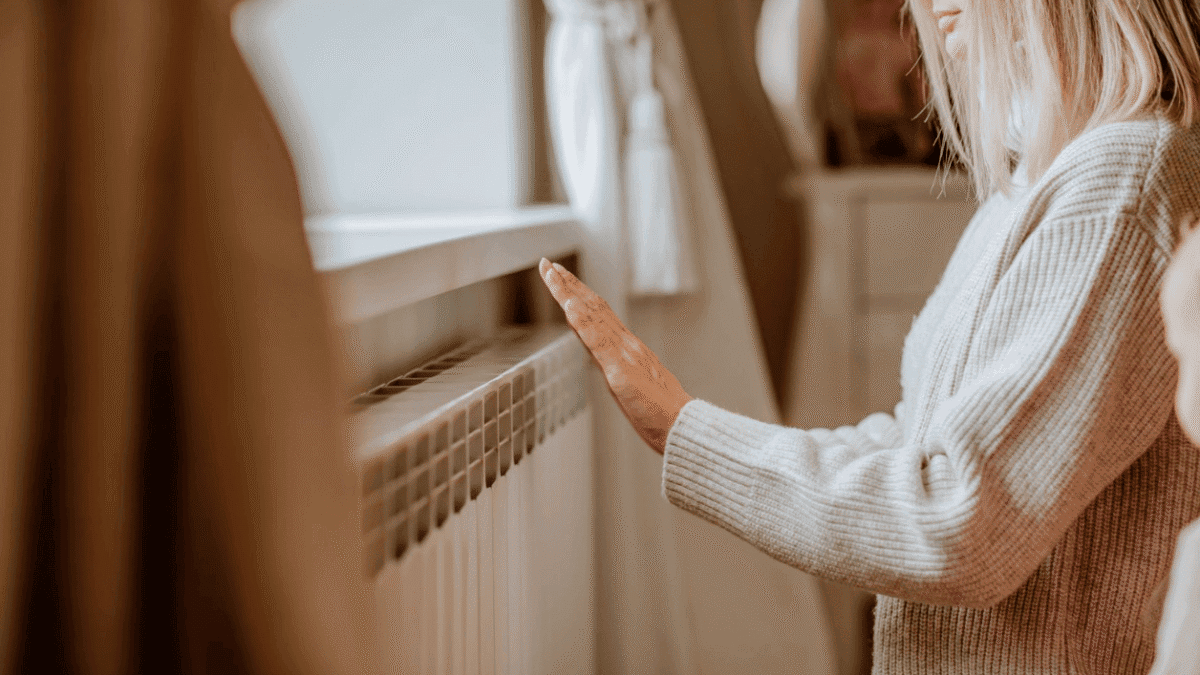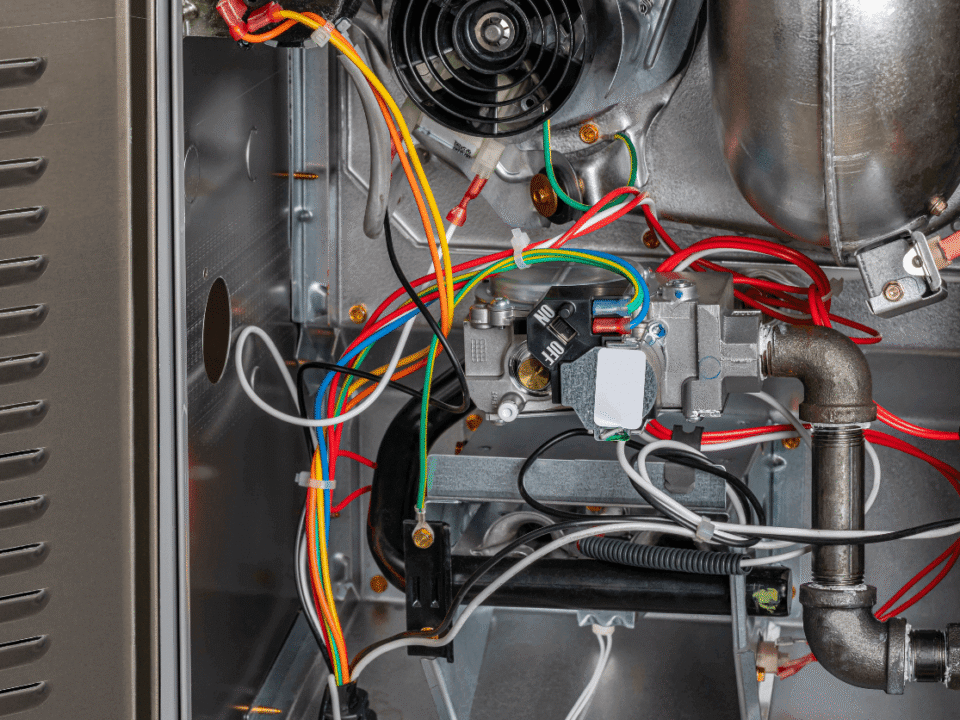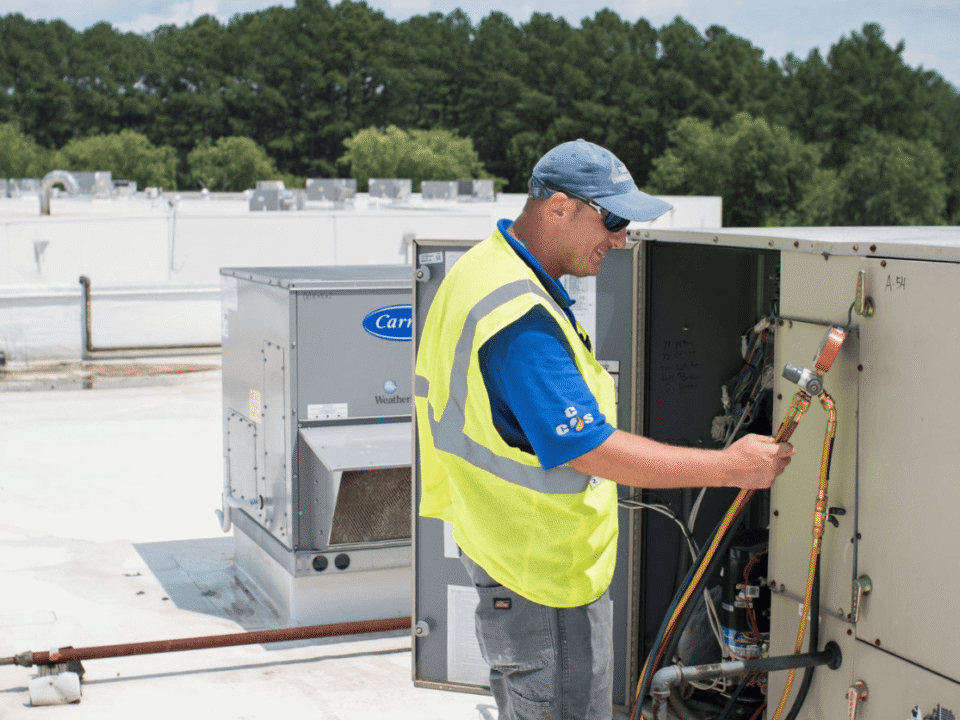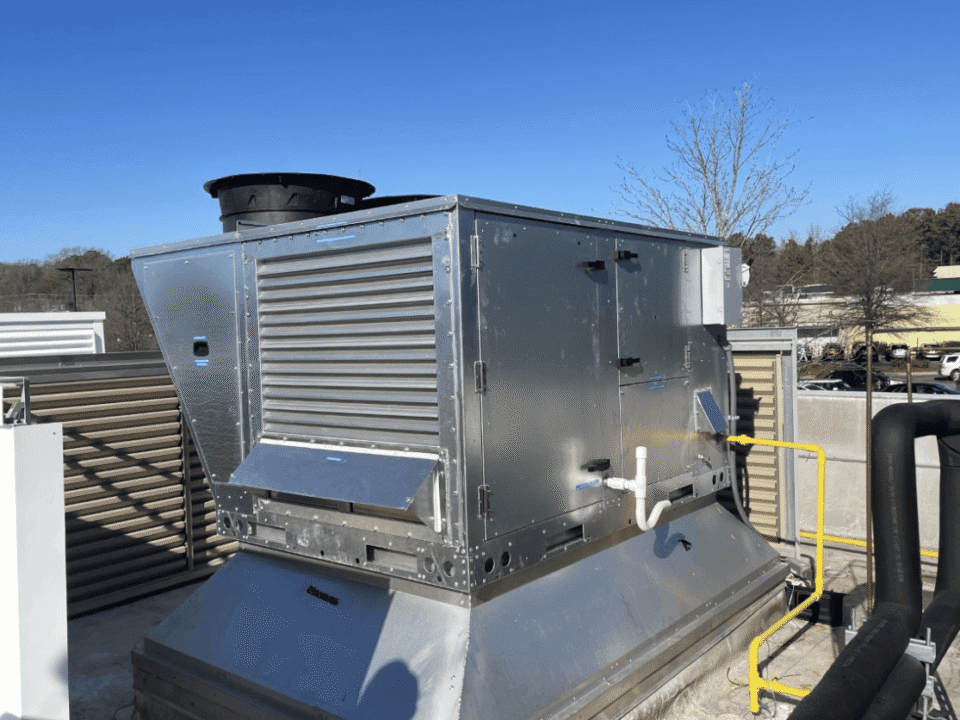
Why is Water Leaking from My Furnace?
October 9, 2025
How to Fix Poor Airflow in Your HVAC System
November 6, 2025Which heating system fits your Raleigh home?
When winter hits the Triangle region, staying warm and comfortable becomes a top priority. While summers here are known for their humidity, the colder months can bring chilly nights that make an efficient heating system essential. Whether you’re building a new home, upgrading an old system, or simply exploring your options, understanding the main types of heating systems will help you make the best decision for your household.
In this guide, we’ll break down how each system works, their benefits and drawbacks, and what you should consider before investing in one.
The Importance of Choosing the Right Heating System
Your heating system is about comfort, efficiency, safety, and long-term costs. The right system can lower energy bills, improve indoor air quality, and keep your home cozy for years to come. But with so many options on the market, it can feel overwhelming to know where to start.
Here in Raleigh, where winters are moderate compared to northern states, heat pumps are extremely popular. However, furnaces and boilers are still excellent choices depending on your needs, your home’s structure, and your budget.
Furnaces
A furnace is one of the most common heating systems in North America. Furnaces generate heat by burning fuel (usually natural gas, propane, or oil) or using electricity. That heat is then pushed through ductwork using a blower motor, distributing warm air throughout the home.
Pros of Furnaces
- Fast Heating: Furnaces heat up quickly and provide strong, consistent warmth.
- Wide Availability: Natural gas furnaces are common and easy to install in many homes.
- Energy Efficiency: Modern furnaces, especially those rated with AFUE (Annual Fuel Utilization Efficiency) above 90%, are highly efficient.
- Durability: With proper maintenance, furnaces can last 15–20 years or more.
Cons of Furnaces
- Ductwork Required: If your home doesn’t already have ducts, installation can be expensive and invasive.
- Air Quality Concerns: Dust, allergens, and dry air can circulate if ducts and filters aren’t maintained.
- Fuel Costs: Gas and oil prices can fluctuate seasonally.
Furnaces are an excellent option for homeowners with existing ductwork who want a powerful system that can handle even the coldest nights. If you prioritize quick, strong heat and don’t mind regular maintenance of ducts and filters, a furnace may be your best bet.
Heat Pumps
Heat pumps are unique because they can both heat and cool your home. They work by transferring heat instead of generating it. In winter, a heat pump extracts warmth from the outdoor air and brings it inside. In summer, it works in reverse, removing heat from indoors and releasing it outside – similar to an air conditioner.
There are several types of heat pumps:
- Air-Source Heat Pumps
- Geothermal Heat Pumps (use the ground’s stable temperature)
- Ductless Mini-Split Heat Pumps (great for homes without ductwork)
Pros of Heat Pumps
- Year-Round Comfort: One system provides both heating and cooling.
- Energy Efficiency: Because they transfer heat instead of producing it, heat pumps can be up to three times more efficient than furnaces.
- Environmentally Friendly: Lower greenhouse gas emissions compared to fuel-burning systems.
- Flexibility: Ductless options make them ideal for additions or homes without central ducts.
Cons of Heat Pumps
- Performance in Extreme Cold: In very cold climates, heat pumps can struggle, but in Raleigh’s moderate winters, they work very well.
- Upfront Cost: Higher installation costs compared to furnaces.
- Electricity Use: Since heat pumps run on electricity, high energy rates can increase costs if the system isn’t efficient.
For Raleigh homeowners, heat pumps are often the most cost-effective and efficient solution. They’re particularly appealing if you want one system to handle both heating and cooling. With our climate rarely dipping into sub-zero temperatures, heat pumps are a smart choice for year-round comfort.
Boilers
Boilers use hot water or steam to heat your home. Instead of ducts, they circulate water through pipes to radiators, baseboards, or radiant floor systems. Boilers can run on natural gas, oil, or electricity.
Pros of Boilers
- Even, Comfortable Heat: Boilers provide consistent, draft-free warmth.
- Quiet Operation: No noisy blowers or fans.
- Air Quality Benefits: Since they don’t blow air, they don’t spread dust or allergens.
- Long Lifespan: With good maintenance, boilers can last 20–30 years.
Cons of Boilers
- No Cooling: Unlike heat pumps, boilers only provide heating, so you’ll need a separate cooling system for summer.
- Slower Heat: It takes longer to feel warmth compared to a furnace.
- Higher Installation Costs: Especially if your home isn’t already set up for a boiler.
- Potential for Leaks: Pipe and radiator leaks can cause water damage.
Boilers are less common, but can be ideal for older homes with radiator systems or for homeowners who prioritize clean, radiant heat. If you value comfort and quiet over quick heating, a boiler may be a worthwhile investment.
Key Factors to Consider When Choosing a Heating System
Here are just a few considerations when making the choice on a new heating system for your home.
- Climate: In Raleigh’s mild winters, heat pumps are often the most efficient option. Furnaces are ideal for those who want powerful heat on the coldest nights. Boilers are best suited for specific home setups or preferences.
- Existing Infrastructure: Homes with ductwork typically run best on a furnace or air-source heat pump. Homes without ductwork may wish to install a boiler or ductless mini-split heat pump.
- Size of Your Home: The size of your home plays a crucial role in selecting the right heating system. Your installation contractor can perform a heat load calculation to determine the system size that will provide optimal comfort without wasting energy.
- Budget: Furnaces typically have lower upfront costs. Heat pumps save more on energy bills over time. Boilers require higher installation investment but last longer.
- Indoor Air Quality: Consider the impact of your heating system on indoor air quality. Many modern systems come with air infiltration and purification features that can improve the air you breathe at home.
- Energy Efficiency Goals: Heat pumps lead in efficiency and environmental benefits. High-efficiency furnaces are still very effective. Boilers shine in comfort and longevity.
- Maintenance and Lifespan: Regular maintenance is essential to keep your heating system running efficiently. Be sure to factor in maintenance costs and the expected lifespan of the system when making your decision. Learn more about the major components of your heating system.
- Future Plans: Planning to sell your home? Energy-efficient systems can boost resale value. Looking for a long-term solution? Consider durability and operating costs.
Maintenance Tips for All Systems
No matter which heating system you choose, regular maintenance is key to longevity and efficiency:
- Furnaces: Change filters every 1–3 months, schedule annual inspections, and clean ducts when needed.
- Heat Pumps: Keep outdoor units clear of debris, check refrigerant levels, and get professional service twice a year.
- Boilers: Monitor pressure, bleed radiators when necessary, and schedule yearly tune-ups.
Preventive maintenance not only improves efficiency but also helps avoid costly breakdowns during the coldest days of winter. Carolina Commercial Systems can perform your routine maintenance for you, ensuring your system continues to work as intended all winter long.
Final Thoughts
When it comes to heating your Raleigh, NC home, the best system depends on your unique needs, your budget, and your home’s setup.
At Carolina Commercial Systems, we specialize in helping homeowners find the perfect solution for their comfort. Our team of experienced technicians can assess your home, recommend the right system, and provide expert installation and maintenance so you can stay warm all winter long.
If you’re ready to explore your options for a new heating system in Raleigh or the surrounding Triangle area, give us a call today for a consultation.



